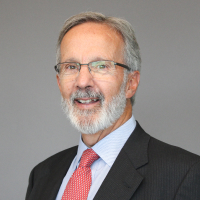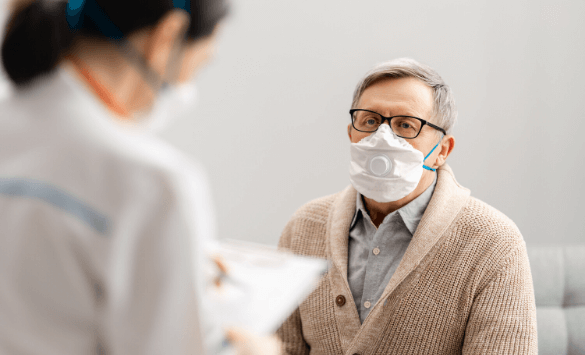In our recent webinar, ‘The Coronavirus Pandemic in Workers’ Compensation: What are the Medical Providers Thinking?,’ I moderated a discussion on the pandemic’s impact on the workforce from a psychologic and medical perspective. The discussion featured two medical experts, Carlyle Voss MD and Kenji Saito MD JD, both with years of experience working with workers’ compensation cases and claims for claimants and employers. Carlyle Voss MD is a psychiatrist with over 30 years of forensic psychiatric experience. He is a physician who regularly consults on Workers’ Compensation cases for both claimants and employers. Kenji Saito MD JD is a physician lawyer who is a fellow of the American College of Occupational and Environmental Medicine where he is board certified. Dr. Saito’s practice is one where he treats patients and regularly consults on workers’ compensation claims.
So, what did we learn from this discussion? We learned one of the hallmarks of the COVID-19 is how little we know about it. This illness is new to our medical community and as a result it is new to society as a whole. As our knowledge base increases so does our ability to adapt and adjust.
What is a Virus?
We learned COVID-19 is a virus, or non-living matter that has one purpose, reproducing itself. It does this by attaching to a host and reproducing. It is the reproduction that is so harmful to humans. At present our knowledge on how the virus is transmitted is limited and largely incomplete. We know it can attach to surfaces, lay in wait until a potential host comes into contact, and that it can be in the air as a result of an infected persons cough, sneeze, or routine breath. This limited knowledge has led to the recommendations of washing our hands frequently, wearing masks, and socially distancing from one another.
Considerations When Settling a COVID-19 Claim
To make the connection between the pandemic and its impact on workers’ compensation claims, our main lesson focused on the medical considerations when settling a COVID-19 claim. When someone contracts this virus how are they injured? In other words, how do we define the nature and scope of such an injury? The discussion assumed a case was compensable and a medical provider was tasked with identifying what bodily systems were impacted and correspondingly what would future medical care entail. At the beginning of this article a comment was made on how much is unknown. Based on our limited and growing knowledge, a patient with COVID-19 would need to have his lungs, kidneys, cardio-vascular, and neurological systems thoroughly examined. In addition, there is some reason to believe there may be post recovery cognitive deficits. If this is suspected, a psychological assessment may be in order. A plan for post settlement medical treatment might therefore entail ensuring there are funds available for monitoring, assessing, and treating some or all those anatomical systems.
How is the Medical Community Adapting to COVID-19?
The medical and regulatory communities have been quick to adapt and adopt a telemedicine evaluation and treatment model. Telemedicine is not new, it has been on the horizon for years, but the crisis we are experiencing has expedited its adoption. Our panelists discussed telemedicine from their specialty’s perspectives with both ultimately observing it has come to be a valuable tool. The medical community believes its use will likely continue after this crisis subsides and it will be more broadly accepted. Telemedicine will no longer be an adjunct to traditional medical, it will in some instances replace it.
A problematic concern with COVID-19 is some who are infected are unaware because they are completely asymptomatic. That is, the virus infects them without any visible signs or symptoms. A historical character, Typhoid Mary, is an example of someone who was like that. Mary was an asymptomatic cook in New York who worked for a number of wealthy families. Unbeknownst to the families for whom she worked, she spread Typhoid Fever through the food she prepared. The concern today is there are individuals in our society who are infected without symptoms, spreading the virus to others. It is not until testing or contract tracing is more broadly available that we will we be able to identify these unwitting carriers—these twenty-first century versions of Typhoid Mary.
As a final note, we also learned there is much about COVID-19 in the popular press that has been described as “sloppy reporting on sloppy science.” Not much can be done about this problem other than being vigilant and careful in what you read and even more careful in what you accept as factual. Some of the reporting is both accurate and troubling. COVID-19 is not an equal opportunity pandemic. It is becoming clear individuals with certain co-morbidities are at greater risk than the general population. Chief among these is obesity. The thinking here is many who are obese have additional health problems connected to obesity. Age is also a statistically important risk. We learned as we age our immune systems gradually have a reduced ability to defend against opportunistic infections particularly those as aggressive as COVID-19. We learned how aggressive this virus is as compared to other illnesses. It is thought to be efficiently transmitted. With the limited knowledge we have, the medical community is recommending avoiding contact via personal sequestration, social distancing, and wearing protective devices.
Our title concerns the thinking of medical providers. It intentionally avoids the suggestion the medical aspects of this pandemic are all well understood. It is clear our understanding of the medical aspects of this virus are evolving. We know some things about it, but not enough to make many if any definitive statements. As our understanding matures, we will be in a better position to live with this virus and prepare for our new normal.


